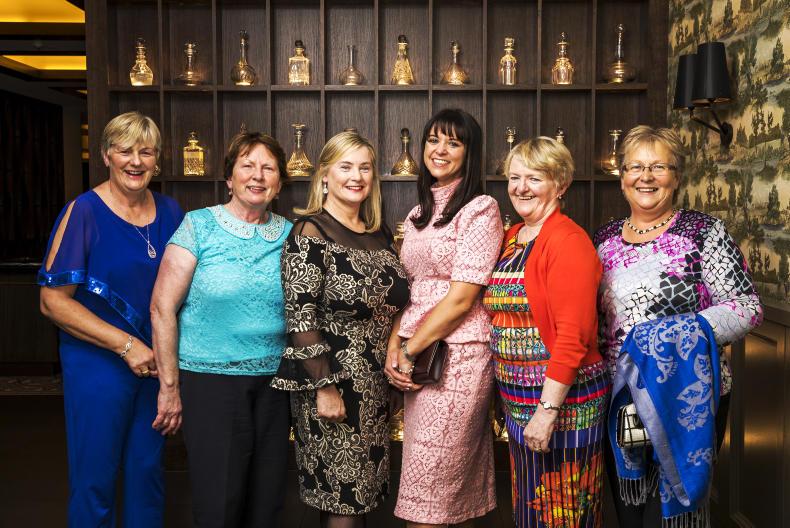The sunset obscured the view of Loch Léin against the backdrop of the still, majestic McGillycuddy Reeks mountain range at Hotel Europe. It had been a relaxing setting for the 11th Women & Agriculture Conference, supported by FBD Insurance. This is a conference that has grown in stature over the years. It is designed to serve rural women in several ways by informing us, celebrating us and entertaining us.
Mairead Lavery
The Women & Agriculture Conference was the brainchild of former editor Mairead Lavery. Like many of Mairead’s brilliant ideas, she was like a dog with a bone. The venue had to afford an opportunity for women to relax. After a few years, Mairead suggested an evening dinner and entertainment before the conference. That too became a fixture.

The brand of Irish Country Living grew and flourished under Mairead. She then decided that we should have a glossy magazine and Irish Country Magazine was born. Mairead built her team around her, garnering huge respect for her writing and all her interactions with rural women.
She chaired the panel discussion on women’s involvement in farm organisations, but in advance of this she was taken by surprise with a slideshow of photographs that depicted the many images of Mairead. Reelin’ In the Years played in the background. Within seconds, the women were on their feet clapping in appreciation of Mairead, the sheep farmer from Shanagolden who had put them firmly in the picture within the Irish Farmers Journal.
It was a fitting tribute to the former editor of Irish Country Living. I thank her on behalf of all the women she has served. While Mairead steps aside from her management role, she will continue to write for the Irish Farmers Journal.
Meanwhile, Amii McKeever has stepped into the role of editor of Irish Country Living. Confident, competent and classy, she chaired her first Women & Agriculture Conference with aplomb. She was ably assisted by Ciara Leahy, consumer editor. Change can be difficult but it is also very exciting and stimulating. It was evident that the women have taken to her professional and friendly disposition already, appreciating that Irish Country Living is in safe hands.
Deficit in mental health supports
Noreen Murphy of Lisheens House, Skibbereen, prompted another standing ovation for her raw and harrowing story of her husband Donal’s suicide and, in particular, the years of desperation while he struggled without any available supports. Now nine years on, she has developed a counselling and support service at Lisheens House to prevent suicide and self-harm. Lisheeens House received no funding in the budget and yet patients from the local hospitals are continuously referred there. Noreen finds this situation bizarre and appealed to the women to highlight the lack of funding for mental health to politicians.
New barriers post-Brexit will cost time and money and ultimately the Irish primary producer will bear the brunt of the cost.
Brexit discussion
Phelim O’Neill, markets specialist with the Irish Farmers Journal, chaired a discussion with Justin McCarthy, CEO of the Irish Farmers Journal, Anne Randles, director Ornua, and Celine McAnenly, who has worked extensively in the border area. Anne explained that 25% of the milk produced in Ireland goes to the UK. If there is a “no deal Brexit”, both women were confident that produce would still be processed but maybe in a different way.
Justin defined the backstop in simple terms as “business as usual”. In analysing why Ireland is so exposed in a no-deal situation, he said: “As a population of almost five million, we export enough food to feed 35 million Europeans. Come Brexit, the vast majority of those consumers may no longer be European. They will be British consumers and that presents the challenge.”
He said that the UK eats five times more beef than the Irish, meaning that the British market for beef is five times more important than that of our home market. New barriers post-Brexit will cost time and money and ultimately the Irish primary producer will bear the brunt of the cost.
In summary, Justin said, that he hoped emotionally and economically that we never see a border on the island of Ireland and from a trade point of view that we never see a border in the Irish Sea.
To everyone who travelled, attended and engaged with us. Thank you.
